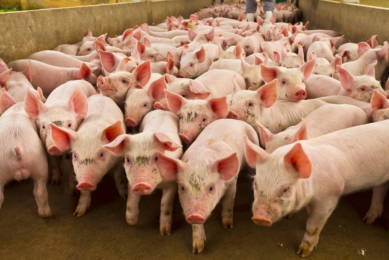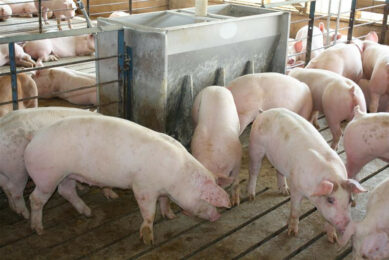Product of the USA label still hotly debated

The US Nation Pork Producers Council (NPPC) is still reviewing the rule change to the Product of the USA label proposed 2 years ago by the US Department of Agriculture (USDA). The NPPC eventually plans to submit comments to the US government.
The NPPC points out that today’s fully-integrated and globally competitive North American market benefits consumers, American farmers and the US economy. “It is important that the proposed rule does not violate international obligations under the World Trade Organisations and agreements with our Canadian and Mexican trading partners.”
Accurate and transparent?
However, there are also domestic market concerns for pork and all other types of meat with the proposed label change. In 2021, when US Agriculture Secretary Tom Vilsack first proposed making a change, he stated that the current Product of USA label on meat products may not be providing consumers with the accuracy and transparency they need, and may be confusing them about the actual origin of meat products.
Loophole in change of Product of the USA
However, Bill Bullard, CEO of the largest producer-only beef lobbying and trade association in the US, recently pointed out in the Capital Press that the proposed new rule does little to dispel confusion.
He explains that even though the new rule aims to stop the practice of being able to place a ‘Product of the USA’ label on pork, beef or other meat that is imported and simply repackaged in the US, this label should only be for meat from animals born, raised, slaughtered and processed in the US.
The change, that is, will continue to permit the ‘Product of the USA’ label on imported products, benefiting the big meat companies but putting livestock farmers at a disadvantage in the market.
Bullard says the USDA gave him an example of what would still be possible under the new rule: it would still, for example, be able to permit a label for imported-and-repackaged products that states ‘Sliced and packaged in the United States using imported pork.’
Just the name will make shoppers buy the product
As he explained in the Capital Press on March 9, for a shopper predisposed to prefer a product produced in the US, “just the term ‘United States’ viewed anywhere on the package is likely to be enough to cause the shopper to select the product for purchase. To make matters worse, this sliced and packaged foreign [meat] will also be labeled with a USDA inspection stamp.”
To fix the problem, Bullard suggests that Congress reinstate mandatory country of origin labeling. He also suggests that the USDA enforce regulations that already require imported products to retain their foreign label, unless the product was substantially transformed in the US.











